
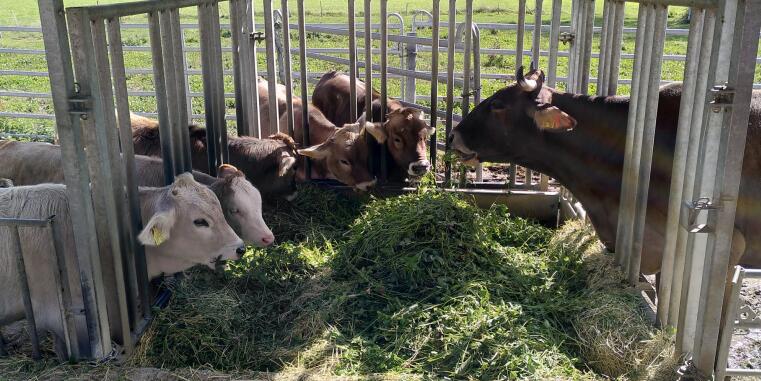
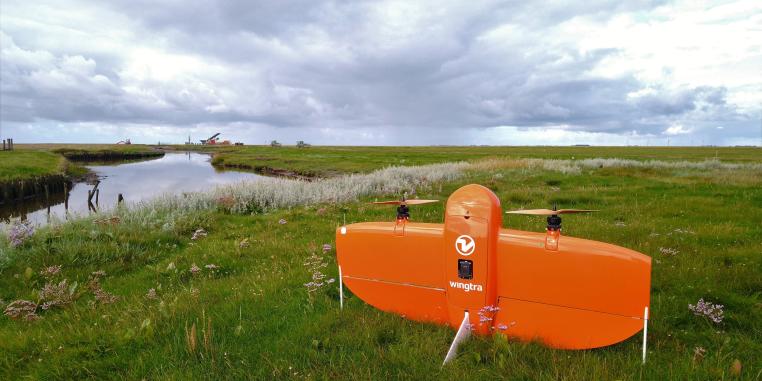
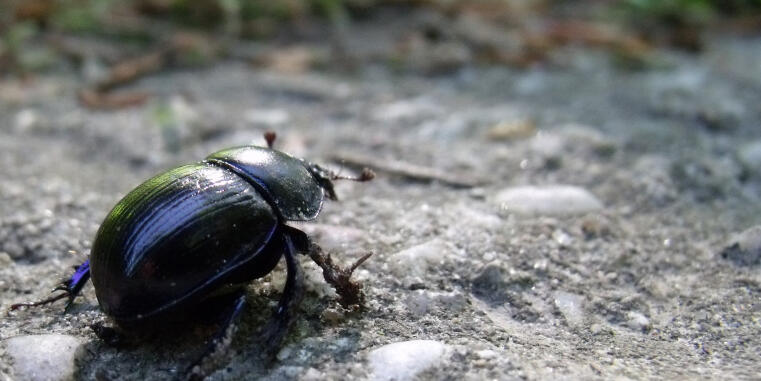




The Applied Landscape Ecology/Ecological Planning working group (AG Buttschardt) researches the effects of human ways of life and land use on the natural and landscape environments and how these can be designed to achieve a regenerative development of landscapes. We assume that landscapes are the spatial representation of socio-ecological systems that can only be fully understood in an interdisciplinary approach. In order to take into account the applied aspect of ecological planning, our research is increasingly transdisciplinary and explicitly includes the noosphere. We therefore cooperate with interdisciplinary centres (e.g. the ZIN or the Brazil Centre), other Universities (e.g. Münster University of Applied Sciences) and practitioners (see links). Our work focuses on Integrated Natural Resources Management, Agroecology and Limnology/River restauration.
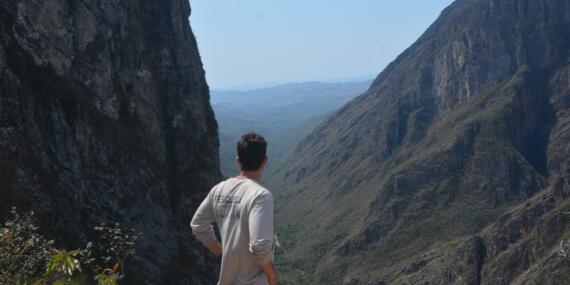

Join the University of Münster on the MS Wissenschaft, which is touring Germany as part of the "Science Year 2024 - Freedom". The floating science centre will dock in Münster's city harbour, near the Kunsthalle, from 18 to 22 July 2024.
Dialogue on deck: "Does freedom need borders? - An interdisciplinary panel discussion"
Centre for Interdisciplinary Sustainability Research (ZIN)
Whether it's the limits of ecological systems, the finite nature of certain raw material deposits, the 'limits to growth' or politically agreed limits and bans - in the context of 'sustainability', it quickly seems to be primarily about different forms of limiting freedom. At the same time, "sustainable development" aims to guarantee everyone the freedom to lead a "good life" and, in the same way, restrictions on the options of some in certain areas or places often serve to preserve the options of others (e.g. future generations).
The discussion about freedom and its limits in the context of 'sustainability' therefore calls for a differentiated and multi-perspective examination of these concepts: Where are limits set to human freedom - where and by whom should and may they be set? Whose freedom are we actually talking about: that of individuals? The freedom of entire communities? Or perhaps also the freedom of non-human beings? And what exactly do we mean when we say we talk about freedom?
In the panel discussion organised by the Centre for Interdisciplinary Sustainability Research (ZIN) at the University of Münster, academics from a wide range of disciplines will explain their position on the questions outlined above. Following an interdisciplinary discussion, the audience will also have the opportunity to share their own questions and points of view.
Panel guests: Prof Dr Christan Klein-Bösing, Institute of Physics, Prof Dr Nexhmedin Morina, Institute of Psychology, Dr Carolin Bohn, Institute of Political Science, PD Dr Bernd Rosslenbroich, Witten-Herdecke University
Moderation: Prof. Dr Tillmann Buttschardt, spokesperson for the Centre for Interdisciplinary Sustainability Research (ZIN) at the University of Münster
Admission is free. Registration is not required.
NABU background paper on agroforestry published
How can modern agroforestry systems become part of a nature conservation strategy? NABU's new background paper helps stakeholders and interested parties to take a stand on the ecological advantages and disadvantages of agroforestry.
Until now, there have been many unanswered questions regarding the nature conservation categorisation of the commercial use of woody plants in fields, meadows and pastures. It is precisely these gaps in the debate that the new background paper from the nature conservation organisation NABU addresses.
The background paper was compiled by Thomas Middelanis and Julia Binder with experience from the agroforestry monitoring network together with NABU NRW's State Expert Committee on Agriculture.
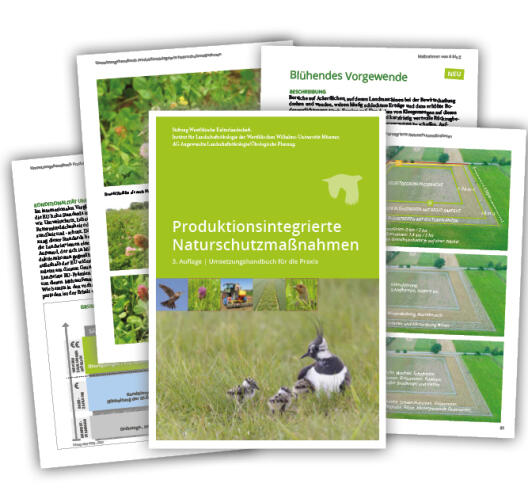
Nature conservation measures are implemented on agricultural land, can be integrated into agricultural production or the farm and achieve added value for nature. In the handbook, 24 PIN measures for 35 species are presented on 120 pages. Questions about function, implementation and legal framework conditions are clarified. In addition, there are practical examples and cooperative projects between nature conservation and agriculture in which PIN has already been successfully implemented. The handbook is the result of cooperation between AG Ökoplan and the Westphalian Cultural Landscape Foundation.
The handbook was funded by Landwirtschaftliche Rentenbank. You can order it here for a nominal fee of 6.50 EUR.